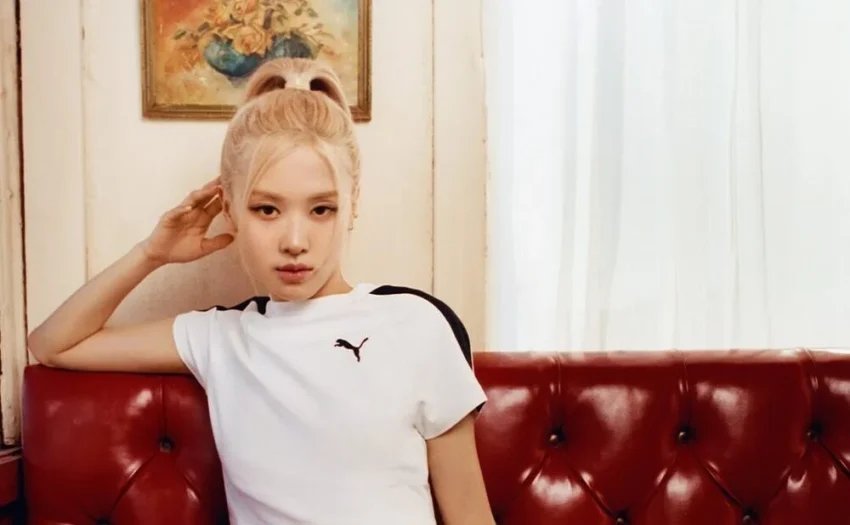ROSÉ and her song APT. continue to break records on the Billboard Hot 100, staying on the chart for 27 consecutive weeks. Her collaboration with Bruno Mars not only surpassed previous K-pop records but also sparked a wave of praise and debate online. Meanwhile, JENNIE also entered the Billboard Hot 100 with Like JENNIE, proving BLACKPINK’s ongoing global impact.
Milestone for ROSÉ and Billboard Hot 100 with “APT.”
K-pop sensation ROSÉ has reached a new milestone that cements her status as a global music icon. On April 30, Billboard reported that APT., her duet with Bruno Mars, ranked 16th on the Billboard Hot 100. Although the song dropped three spots from the previous week, it remains on the chart for the 27th consecutive week. This accomplishment sets a new record for the longest-charting song by a female K-pop artist on the Billboard Hot 100. The previous record was held by FIFTY FIFTY’s Cupid, which charted for 25 weeks.
How “APT.” Became a Global Phenomenon
APT. was released in October as the lead single from ROSÉ’s first full-length solo album. The moment it dropped, it triggered explosive reactions around the world. Fans praised the unique chemistry between ROSÉ and Bruno Mars, who brought their distinctive styles together in one unforgettable collaboration. The song didn’t just dominate Korean charts—it also soared to the top of major global rankings. The crossover success of APT. highlighted the growing influence of K-pop on the international stage. Thanks to this momentum, TIME Magazine included ROSÉ in its 2025 list of the 100 most influential people worldwide.
JENNIE and ROSÉ Both Shine on the Billboard Hot 100
While ROSÉ’s chart performance continues to make headlines, fellow BLACKPINK member JENNIE is also enjoying solo success. Her debut solo album’s title track like JENNIE reached number 99 on the Billboard Hot 100. This marked its third appearance on the chart and second consecutive week on the list. In Korea, like JENNIE achieved notable results by becoming the first solo female track in 2025 to top both the Melon Top 100 and Daily Chart. Internationally, it surpassed 200 million streams on Spotify—an impressive figure that solidifies JENNIE’s place in the global music scene.
ROSÉ and Billboard Hot 100 Spark Community Buzz
News of ROSÉ staying on the Billboard Hot 100 for 27 straight weeks quickly spread through Korean online communities. Platforms such as theqoo, Instiz, and MLBPARK filled with praise and admiration for her achievement. Many fans left congratulatory messages, calling the feat historic and well deserved. However, one post on Nate Pann stirred controversy by accusing ROSÉ of having a “white complex.” The writer pointed to her New Zealand nationality, her preference for bleached hair, and her decision to leave the Korean copyright association in favor of the American one.
Debunking Misconceptions About ROSÉ’s Identity
The majority of comments swiftly refuted the claims made in the Nate Pann post. Many users criticized the logic, arguing that hair color does not reflect racial identity. ROSÉ’s decision to maintain bleached hair was seen as a personal style choice, not an attempt to appear white. Commenters also clarified that ROSÉ holds dual citizenship—Korean and New Zealand—and retains her Korean nationality. Regarding copyright, they explained that the Korean association primarily handles domestic songs. Since ROSÉ’s album was produced in the U.S. and included her own creative input, it made more sense for her to register with the American association. Managing rights through both associations isn’t possible, and for an artist active globally, the American option is more fitting.
Why ROSÉ’s Korean Identity Remains Clear
In multiple interviews, ROSÉ has spoken openly about identifying as Korean. When asked whether she preferred Australia or New Zealand, she confidently answered “Korea,” showing her cultural pride. She has used Korean during appearances on American talk shows and once uploaded a YouTube video of herself cooking kimchi fried rice. Even the song APT. takes its title from a traditional Korean drinking game, reinforcing her connection to Korean culture. All of this contradicts the “white complex” claim. Rather than seeking distance from her roots, ROSÉ consistently embraces and celebrates her identity. The criticism she faced appears to be another case of undeserved hate without thoughtful basis.

Thank you so much for reading this post! I’d love to hear your thoughts, so feel free to share them in the comments!


Rosé is already a globally famous celeb, like TIME mag even picked her! Saying she wants to be white is seriously baseless hate. 🙄 Why do Korean netizens spread such unfounded accusations about idols? Aren’t they proud that Rosé is Korean?!